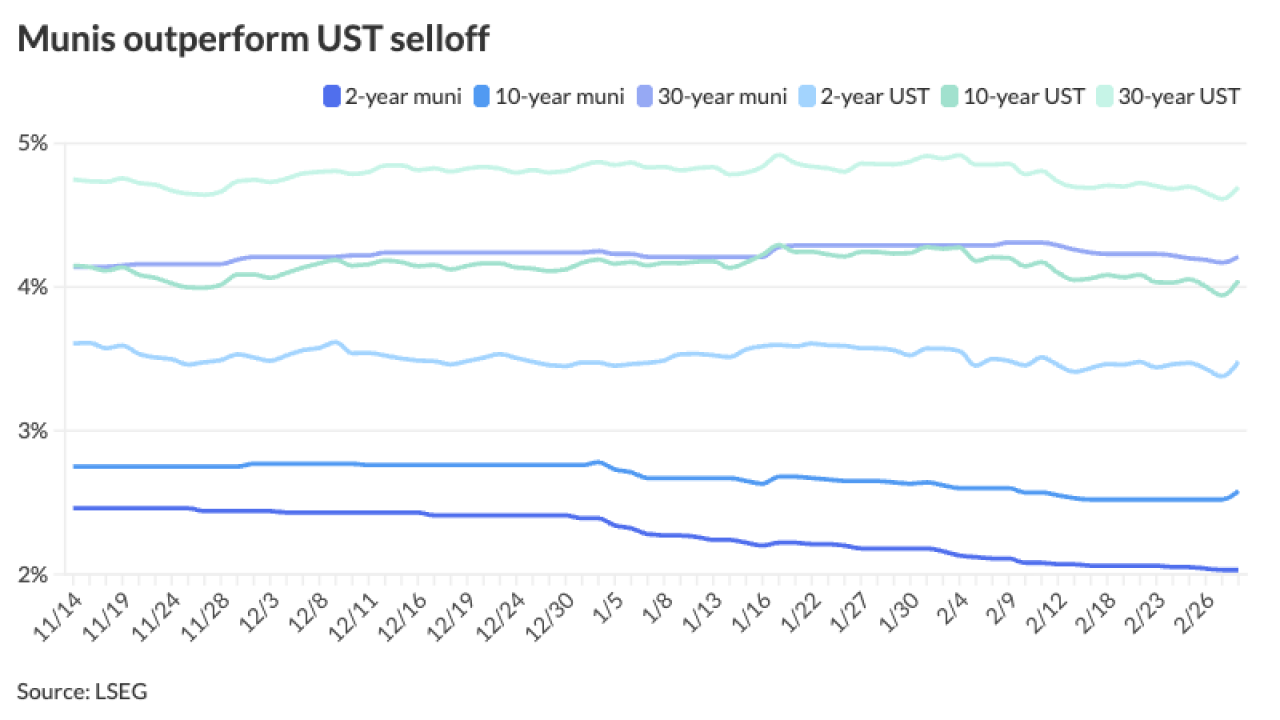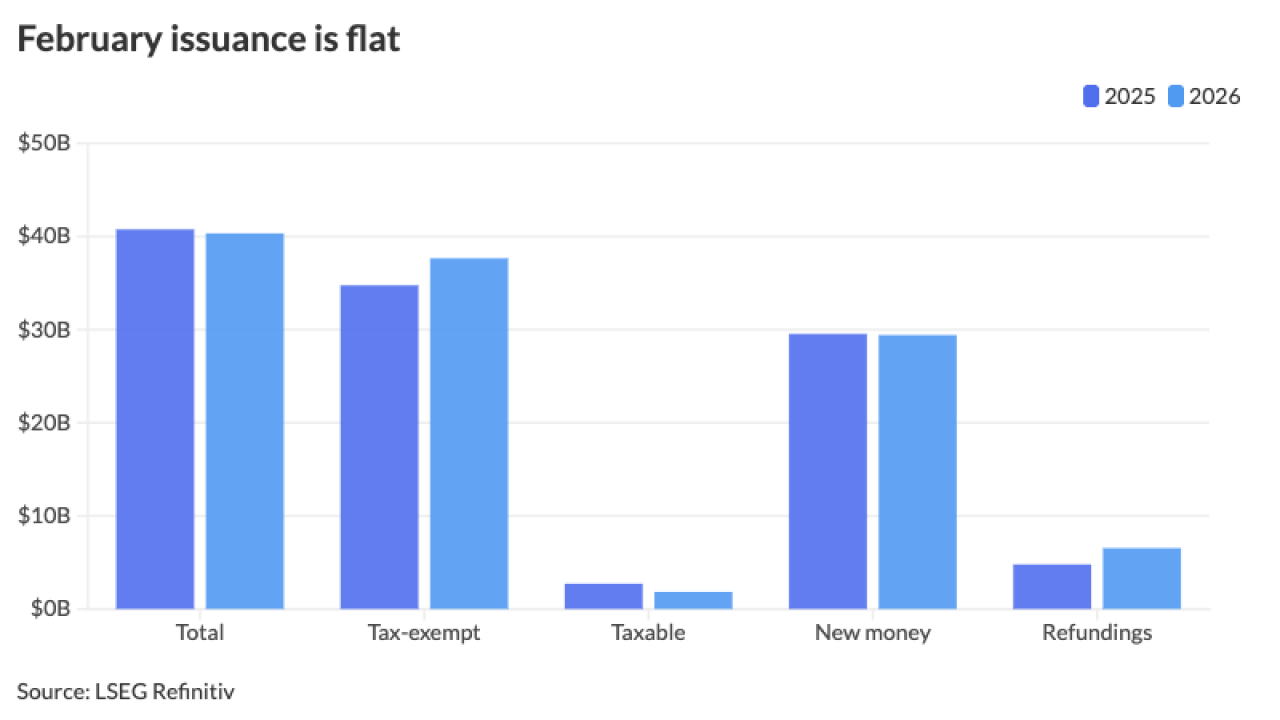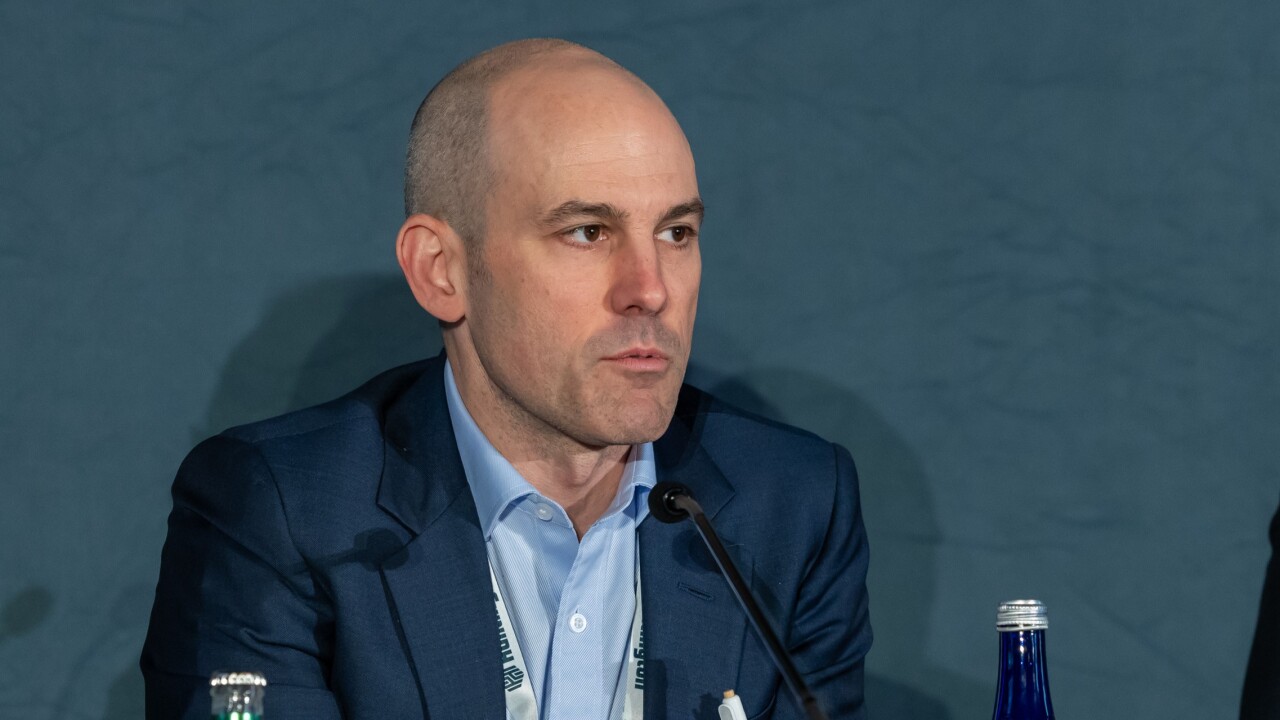
LOS ANGELES — San Diego is moving ahead with plans to price $120 million in bonds in April in the face of an appeal of a court ruling that the city can legally issue the bonds.
Attorney Cory Briggs, representing San Diegans for Open Government, sued, challenging the city's authority to sell the bonds without a public referendum.
San Diego County Superior Court Judge John S. Myer ruled in the city's favor in January, after a three-day trial in 2014, clearing the way for the city to issue lease revenue bonds.
Myer cited precedent the California Supreme Court established in the Rider v. San Diego case. That case involved a challenge to lease-revenue bonds used to build the San Diego Convention Center.
"As we said before these lawsuits were filed, this sort of financing has been upheld by the Supreme Court and is used by cities throughout California," City Attorney Jan Goldsmith said in a release following the ruling.
In the 1998 Rider v. San Diego decision, Briggs said, the California Supreme Court said joint powers agencies can issue bonds without going to the public for a vote.
The question now, Briggs said, is whether the financing structure San Diego is using complies with the Supreme Court's decision in the Rider case.
Briggs contends that the San Diego Public Facilities Financing Authority is not a real JPA in which multiple governments cooperate, because the city council controls every member agency.
"We challenged that structure, because the members of the city JPA are controlled by the city and city council," he said.
Briggs, who has offices in San Bernardino County and San Diego, also led a challenge to Anaheim's plans to issue bonds for its convention center. The city, after prevailing in Superior Court, issued the bonds in 2014 despite a threatened appeal.
If Briggs succeeds, it would have an impact on bond financings all over California.
The city plans to price the bonds in two series, with proceeds used to repave streets, replace crumbling sidewalks and aging storm drains, and upgrade libraries, fire stations, and life guard stations.
The finance team includes Citi as lead manager, the PFM Group as financial advisor, and Stradling Yocca Carlson & Rauth as bond counsel.
The bond documents outline "significant investment risk," adding that the 2015 bonds "are not a suitable investment for all investors. In particular, litigation is now pending challenging the validity of the 2015 bonds and related documents."
Fitch Ratings and Standard & Poor's, comfortable with assurances by bond counsel Bob Whaling from Stradling Yocca Carlson & Rauth, both affirmed the city's long-term rating at AA-minus with a stable outlook. Fitch assigned the lease revenue bonds an A-plus rating ahead of the sale. S&P rated the lease revenue bonds AA-minus.
"Our legal staff reviewed the bond counsel opinion," Alan Gibson, a Fitch analyst, said in an interview.
"In his opinion, [Whaling] said the allegations against the city are without merit," Gibson wrote in the ratings report. "Bond counsel's opinion is based, in part, on the 1998 state Supreme Court decision, which upheld the principal that abatement leases do not violate the constitutional debt limit."
Further, "bond counsel considers that the joint powers authority has the necessary power to issue the series 2015 bonds and has met all the procedural requirements to do so," Gibson wrote.
If the city loses in the court of appeals, it plans to appeal to the state Supreme Court.
"If the state Supreme Court was to rule in the plaintiff's favor, the series 2015 bonds and related indenture and lease documents would be invalid," according to the Fitch report. "Under that scenario, purchasers of the series 2015 bonds would not be entitled to repayment and could lose their entire investment."
The city would not be obligated to make, and might be precluded from making, lease rental payments, thereby adversely affecting bondholders, Gibson wrote in the report.
Bondholders could be required to repay to the authority any previous principal and interest payments made on the series 2015 bonds.
In the event, the city was unable to make a timely payment of bond principal and interest, Fitch would indicate that a default had taken place and withdraw the rating, according to the report.
Originally, the city had planned to hold two different competitive sales on the bonds starting with a $70 million tranche in April 2014, according to San Diego City Debt Manager Lakshmi Kommi.
Briggs said that the city has to go to voters every time it issues bonds; after Rider, he said, cities started forming JPAs with other arms of their own cities, such as housing and redevelopment agencies, he said, to get around such requirements.
While the preliminary official statement includes the court's judgment in the city's favor, it doesn't include the statement of decision that the judge read on the record, Briggs said.
According to Briggs, the judge said the joint powers arrangement looks like a subterfuge.
The city controls the entity and handles the audits for it.
The judge's rationale, according to Briggs was "this looks sketchy to me, but I don't have the authority to reverse a Supreme Court decision, so you, Mr. Briggs need to take this to a higher power to decide."
Briggs said he likes his odds on the appeal, which he estimated could take a year.
"The judge was animated when he made his statement," Briggs said. "He kept telling the city attorney he was trying to do an end run," he said.
Following GASB changes that occurred after Rider, the city began including bonds from the Facilities Financing Authority in its comprehensive annual financial report.
"That was one of the things that was different from Rider," Briggs said. "The city kept arguing that it is just like Rider."
Because of the appeal, Kommi said, the city only plans to market the bonds to institutional investors and not open them up for purchase by retail investors. It also changed the offering from competitive to negotiated, she said.
Part of the bond proceeds will fund San Diego Mayor Kevin Faulconer's plans to repave 1,000 miles of city streets in five years from 2016 to 2020.
"San Diegans who want their streets repaired will find a lot to like in this package," Faulconer said after the City Council approved the preliminary offering documents on Tuesday.
"We're moving full steam ahead with improvements to neighborhoods throughout San Diego," Faulconer said.
Faulconer named street repairs the city's No. 1 infrastructure priority in his Jan. 14 State of the City address. The $49 million for street projects represent significant progress toward fulfilling Faulconer's pledge to repair 1,000 miles of streets over the next five years, he said.
Bonds are only part of the funding for the street repaving program, Kommi said. Cash, state funds, and the transit sales tax will all help fund the program, she said.
Even though Briggs appealed the ruling, Kommi said city officials felt it was okay to move ahead with the marketing of the bonds.
The finance team is the same as last year, with the exception that as a negotiated sale, San Diego put together a syndicate with Citi as lead manager, she said.
Kommi said they have been working closely with the financial manager and underwriter in the hope the litigation will not impact the price of the bonds.
City officials are not too worried about the recent choppiness in the bond markets given that there is still strong demand, but Kommi said they have flexibility on when they go to market.
"We are targeting for April 7, but given the market flux, we do have flexibility to move back if we feel it is more advantageous to the city," Kommi said. "I hope will be able to conduct the pricing."





